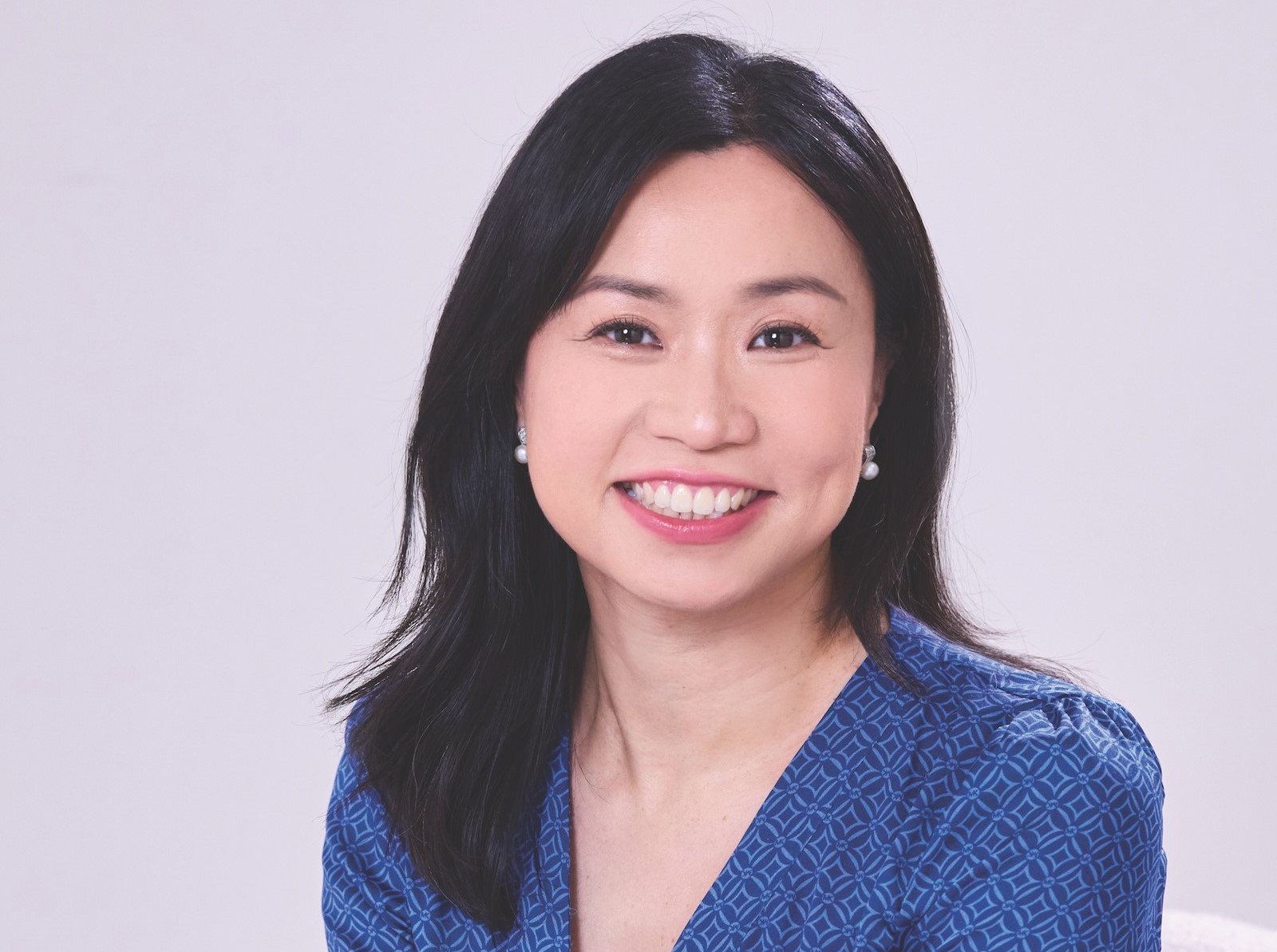We speak to Carolyn Neo about the partnerships that are helping leaders adapt to the transformation of Singapore’s financial services sector
We live in an era of accelerating transformation. Successful businesses – whole sectors – face the need to reinvent themselves. So too do national economies. And, paradoxically, as technology becomes unprecedentedly powerful, an organization’s ability to deploy its human talent effectively is more important than ever.
The scale of the change before us will demand a collective response – something that few leaders understand like Carolyn Neo. As chief executive of Singapore’s Institute of Banking and Finance (IBF), she is playing a key role in bringing together leading organizations to co-create solutions that will help deliver the talent shift that is so urgently needed.
It starts with the recognition that for Singapore, investment in talent is a national strategic imperative. “Singapore is a small island country with hardly any natural resources. Human capital is the key ingredient for our survival and growth,” explains Neo.
That fundamental economic fact has shaped Singapore’s strategic choices historically, and remains critical today as it adapts to the AI era. It drives a deep commitment to education and continuous learning – at every stage of life. “We’ve not only invested a lot in the education system, but also in people who have entered the workforce,” says Neo. “We focus on growing a skilled and resilient workforce, and look at lifelong learning in terms of upskilling and reskilling in line with the evolving landscape – because Singapore is very much connected to the global economy.”
Within that connected economy, IBF operates as an integrated driver of skills development and workforce transformation for the financial sector. Neo serves as chief executive on secondment from the central bank and financial regulator, the Monetary Authority of Singapore (MAS), where she has spent 16 years. Her tenure has included a four-year posting in London, six years in financial center development and three years in prudential policy for the banking sector – providing a rich education in the relationship between the financial sector and society more broadly. “I joined MAS during the global financial crisis,” recalls Neo. “It was a very acute firsthand glimpse of how global financial institutions can impact the economy and the workforce.”
Ever since, Neo’s focus has been on supporting the industry’s evolution. “My journey has very much been looking at the financial sector’s development,” she explains. She has cultivated the capacity to convey a dynamic future-oriented view of the world – and Singapore’s evolving opportunities as an international financial hub.
Yet today’s leader must be Janus-like – facing outward and inward at the same time. Neo’s exposure to a fast-changing external environment happened in tandem with a growing focus on internal capability-building, as she took on the role of organization development and communications leader. “The other aspect I got exposed to is organization-wide transformation – looking at MAS’ own culture and digital transformation, and how we could build a more innovative, agile and data-driven organization,” she reflects. It is a theme that speaks to the ongoing transformations taking place in the financial services businesses she now works with through IBF.
Purpose-driven, people-centered leadership
How does Neo characterize her leadership style? The starting point is the finishing line. “I often begin with the end in mind, to set and align the desired outcomes and impact at the onset. This helps us pivot and focus on where we can best value-add, differentiate ourselves, and deliver impactful outcomes,” she replies.
Such clarity is key for leaders’ decision-making, but it is also critical for guiding their people. “Having that aligned vision and clarity helps to empower the team,” Neo adds.
“To broaden and deepen our impact, I like to challenge the status quo, break new ground and explore different ways of doing things. This sharpens our effectiveness and efficiency.”
That orientation reflects another of the foundations of her leadership. “My leadership style is people-centered,” says Neo. “Our people are our most important asset. It’s essential to engage staff to build a sense of purpose – and I’m interested in nurturing our people, beyond the tasks at hand,” she says.
Neo has capitalized on a talent for cultivating connections with others since her earlier 12-year stint in International Enterprise Singapore (IE, now known as Enterprise Singapore). “My various roles in IE and MAS have helped me forge strong networks, with not only local, but also regional and global leaders across cultures and sectors,” she explains. A powerful network is critical to Neo’s agenda at IBF, as it is for so many other leaders today. Leadership doesn’t stop at the boundary of the organization – far from it. Leaders are the connective tissue that enable different actors to pull together and solve problems more complex than any one organization could tackle alone.
“Collaboration is key, both at the inter-country and inter-entity levels,” nods Neo. Again, understanding the end point is crucial. “All these partnerships are anchored around a common goal – they share a connection to similar opportunities, and to the broader objective of sustained growth that we’re looking forward to delivering.”
Recognition of common objectives is central to the way IBF works with partners to solve talent challenges in the financial sector. Co-creation is key, emphasizes Neo. “When we’re shaping new initiatives, we have to ask, how do we co-shape its parameters and co-develop solutions?”
It is a critical point. Co-creation means leaders can bring different organizations’ unique capabilities to bear. “That’s the joy of having partnership not only with financial institutions, but also with unions and other government agencies,” she enthuses. The benefits are tangible. “When you have tripartite collaboration, what you come up with is simply more practical,” she explains. “If we, as a government agency, just singly roll out interventions, we may not have buy-in – or the most apt solution.”
IBF’s approach attracts interest from similar bodies around the world yet it is not easily copied, having been predicated over the past five decades on Singapore’s unique commitment to tripartite partnership between business, government and unions. “Our framework can be replicated – but what may be hard to execute is the strong tripartism in adopting a concerted, forward-looking and preemptive approach to upskilling and reskilling the workforce at scale,” says Neo. “That kind of understanding and collaboration is quite unique.”
It is a fascinating model, not least because it could contradict the business imperative to keep costs down in pursuit of profitability – or plain survival. Can employers be expected to set aside those considerations?
Neo understands that businesses are driven by their P&L statements – and knows that when times are tough, investment in talent can suffer. “Cost is a key consideration,” she says. “Sometimes the easy way out is to just hire someone who already has the experience or the skills, rather than growing your own timber.” Yet better answers can be found, she argues, when leaders reframe the challenge. “When we have the longer-term outcome in mind – seizing growth opportunities amid uncertainties – it drives strategic commitments in talent development.”
Skills for the future
To help the financial services industry thrive over the coming years, IBF is assessing how skills needs are shifting. Technological change makes this an increasingly urgent challenge. “The shelf-life of one’s skills is getting shorter,” Neo points out.
The key to building a future-ready workforce lies in strategic workforce planning coupled with proactive skills and workforce development – enabling talent to embrace new trends while managing any risks therein. “We need to look at how job roles will be augmented or disrupted, and equip people with new skillsets for redesigned jobs or adjacent career pathways,” Neo explains.
IBF plays a key role in mapping these changes through extensive dialogue with partners via its council, 12 industry workgroups, and engagements with financial sector ecosystem players. “With MAS, we’ve launched Job Transformation Maps (JTMs) to predict the potential impact of emerging trends on jobs and skills in the next three to five years,” explains Neo. IBF maps the new competencies needed for transformed job roles, accredits and co-funds training, recognizes skills mastery via IBF Certifications and Skills Badges, and provides advisory support around career transitions.
Of course, as Neo recognizes, not everything can be predicted. Change is not linear. “Having an open mindset and adaptability are key. Other enduring skills such as critical thinking will be pertinent too,” she continues.
We reflect on the leadership advice that Neo has benefited from herself. “My coach would say, you have to begin with your personal mission,” she reflects. “Once you are anchored on your passion, you will find the inner strength and tenacity to lead your team to pursue your dreams.”
Neo is passionate about supporting women in business, and we reflect on the headwinds that face many women as they confront deep-seated societal biases. Singapore passed a Workplace Fairness Bill in January 2025, aiming to enhance employee protections from discrimination while protecting employers’ flexibility to meet genuine business needs – ultimately, ensuring fair and harmonious workplaces.
Much has changed in recent decades. “Society has moved towards quite a balanced view – we see more and more women taking on leadership roles,” observes Neo. International influences have played their part in changing attitudes. “What is unique about Singapore’s financial sector is that it is very global in nature. Numerous global financial institutions have regional hubs in Singapore, so you see the integration of American, European and Asian values: the sector is very much exposed to female and male leaders from across the globe.”
In the end, opening the door wider for talented women means changing how employers recognize talent – and how they hire. “For me, it’s about advocating a skills-based approach for hiring and promotion. Ultimately, it’s about the skills and competencies you have, regardless of your gender, age, and so on,” says Neo. “Whether you’re female or male is secondary.
“IBF plays a key role in grooming a pipeline of young and senior leaders, including female leaders, for Singapore’s financial sector,” she adds, “through curated leadership programs and support for international postings.”
Shaping the future
With a well-defined understanding of the dynamics transforming financial services – and business more widely – Neo is clear about her vision for IBF’s future. “In the next five years, the financial sector will be transformed at unprecedented scale and speed by the mainstreaming of sustainable finance, the advent of AI and Gen AI innovations, and more. We need to be sharper in sense-making amid fast-evolving trends, and more nimble in what we have been doing,” she says.
Neo is excited by the task ahead. “My vision is for IBF to be a thought leader in shaping skills and workforce transformation blueprint for financial sector workforce, as we navigate new drivers of change. This forward-looking approach will anchor new growth for Singapore, which in turns creates good jobs in the sector.”
IBF is also charting new pathways for talent development across levels, acting as a catalyst in building a pipeline of young and mid-career talent from diverse backgrounds. Last year, IBF broke new ground by convening 13 financial institutions to provide internship exposures to young talent from Singapore’s Institute of Technical Education. Recently, it inked a partnership with three local universities and a pioneer bank, to create and enhance work and study initiatives for aspiring professionals in the sector.
She is confident about the future. “IBF is in a unique position to uplift the workforce to embrace emerging trends, and at the same time pave meaningful learning and career pathways for talent – be it young or mature – in a fast-changing landscape,” she enthuses. “As the future of finance evolves, IBF itself is also pivoting – to become a more digital, nimble, dynamic and resilient organization.”
It is a vision that will resonate with leaders in all sectors, in all parts of the globe. Change is here to stay. There is no choice but to lean into the complexity and uncertainties it creates. Convenience points us toward merely managing the status quo – but that’s a dead end.
The future belongs to those who step up to lead with courage in the service of business and wider society – together.
Vishal Patel is the President of Global Markets at Duke Corporate Education. Patrick Woodman is the Editor of Dialogue.



